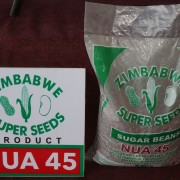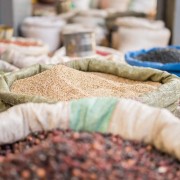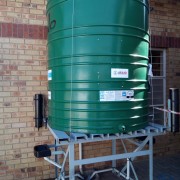Speeches Shim

The Southern African Development Community (SADC) continues to make progress toward regionalizing seed trade. In partnership with the USAID-funded Feed the Future Southern Africa Seed Trade Project, SADC Member States have pressed forward to align their national seed legislation with the SADC Harmonized Seed Regulatory System (HSRS), and in doing so, have created a unified regional standard for the production and export of high-quality seed.

The agriculture sector is of major social and economic importance for all 16 Southern African Development Community (SADC) nations, contributing between four (4) and 27 percent of the gross national product (GDP) and approximately 13 percent of overall export earnings. Further, about 70 percent of the region's population depends on agriculture for food, income, and employment. The success of this agrarian region is highly dependent on easy access to high-quality, improved seed. As Peter Lungu, Director of Zambia’s National Plant Protection Organization has stated, “Seed is a key input for improving agricultural productivity and ensuring food security, and access to quality seed facilitates food resource diversification and prevention of genetic erosion.”
The Southern African Development Community (SADC), under its Harmonized Seed Regulatory System, established a regional seed catalogue and database in 2014 to serve as a central repository and registry for improved, high-quality seed. Once on the SADC Seed Variety Catalog, registered seeds can be marketed and exported to any of the 16 SADC Member States by seed producers without additional testing or red tape. With support from USAID, the application process has been dramatically streamlined, and allows for release in two SADC countries. Once approved by both countries, National Seed Authorities (NSA) can apply to the SADC Seed Centre for approval to the regional catalog. This means that seed producers no longer need to register their seed at the national level in each SADC Member State, but can instead focus on two national markets to gain access to all 16. In turn, this allows for increased trade of improved seed as a critical agricultural input, with the potential to drive economic growth for the region as well as increase food security and help manage changing climate conditions with greater resiliency.
After reaching HIV epidemic control in Eswatini, USAID is pleased and celebrates the work that has been done in Eswatini through its PEPFAR partners to help prevent the spread of COVID-19. One USAID partner, The Luke Commission (TLC), is a faith-based organization providing free, comprehensive, compassionate healthcare to underserved populations. In partnership with the Eswatini Ministry of Health, TLC serves as part of a national COVID-19 response and has screened over 50,000 patients for COVID-19 since March 2020.

The reality on the ground is that nearly one-third of households in South Africa do not have access to adequate handwashing facilities. To help address this critical need, the United States government, through the U.S. Agency for International Development (USAID), has committed R8.6 million ($500,000) to UNICEF to build much-needed handwashing stations within public spaces in communities that lack access to running water, such as health care facilities, schools, transport hubs, and markets.

Comment
Make a general inquiry or suggest an improvement.